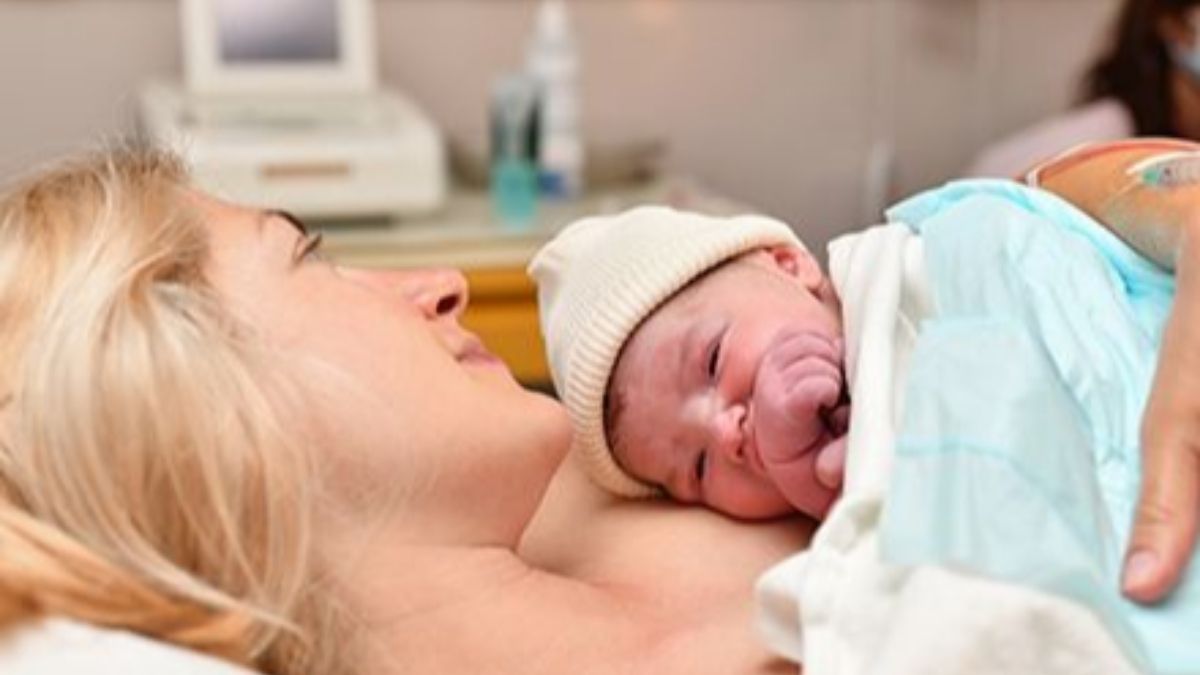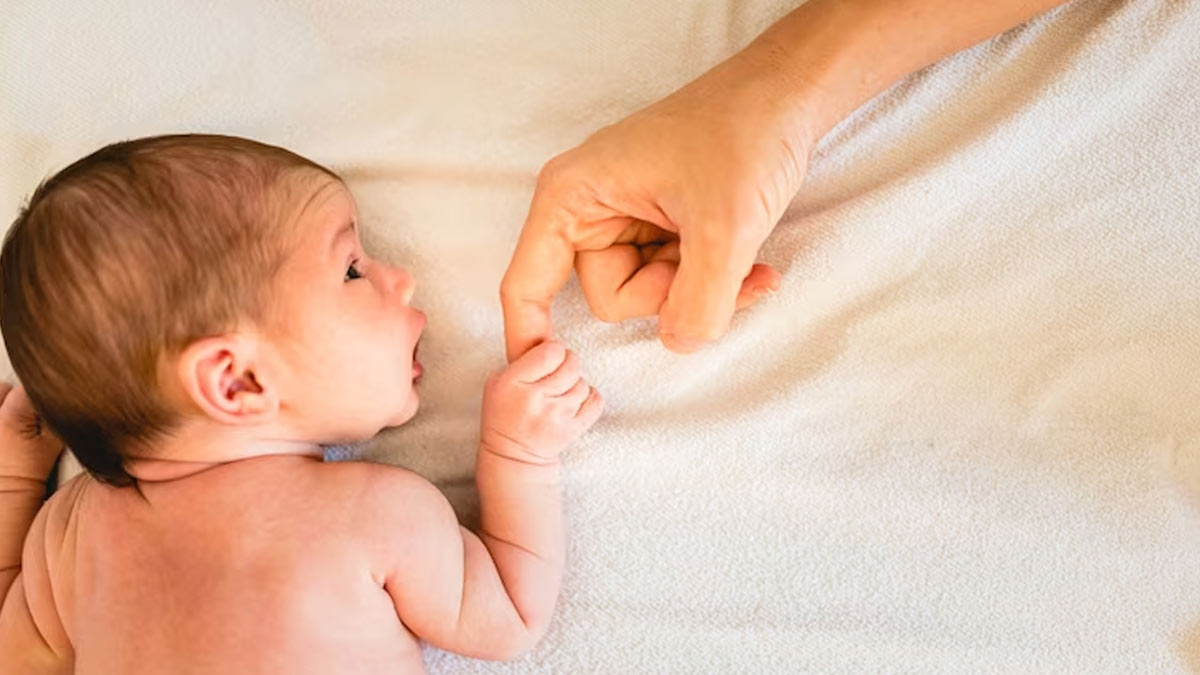
The first 40 days after childbirth is a unique and essential period for both mother and baby. It’s when the mother’s body begins the healing process, and the newborn adjusts to life outside the womb. This time is crucial for recovery, bonding, feeding, and establishing routines that affect long-term health. Dr Chetna Jain, Director and Senior Consultant at Cloud 9 Group of Hospitals, Gurgaon, shares her expert advice on how mothers can navigate this delicate phase with care, comfort, and safety.
Table of Content:-
What Is the 40-Day Rule for Newborns?![40 days after birth for mother 40 days after birth (1)]()
Dr Chetna Jain explains, “The first 40 days after delivery are vital for both mother and baby. The mother is tired after delivery, whether it’s normal or a C-section, so she needs adequate rest for proper recovery. The baby is very fragile and needs to be cared for carefully with proper warmth, hygiene, and feeding.”
Why Adequate Rest Is Vital for Postpartum Recovery
“Rest is the foundation of postpartum healing,” says Dr Jain. “Physical exertion should be avoided during this period so the body can regenerate and regain strength.”
ALSO READ: Can Stress During Pregnancy Result In Your Baby Having ADHD? Find Out From The Expert
Nutrition Myths and What Mothers Should Really Eat![]()
“There are many myths, like mothers shouldn’t drink too much water or shouldn’t eat certain foods,” Dr Jain points out. “Actually, mothers should consume healthy home-cooked meals with a little ghee, turmeric, ajwain, methi seeds, and shahi jeera. These traditional herbs boost healing. Well-cooked foods that are low in spices, such as rajma and chola, are also fine. The key is nutrition that supports recovery without causing digestive upset.”
The Role of Traditional Oils and Massage in Healing
“Massage is very beneficial as the mother is mostly resting,” explains Dr Jain. “A warm oil body massage, ideally using coconut or almond oil, for about an hour daily, improves blood circulation, relieves body aches, and soothes muscles.”
Monitoring Health Conditions and When to Seek Help![40 days after birth]()
“Women with pre-existing conditions like hypertension, diabetes, or thyroid need to monitor these closely,” says Dr Jain. “If there are unusual symptoms such as painful urination, heavy bleeding, or foul-smelling discharge, patients should seek immediate medical advice.”
Managing Common Postpartum Symptoms
Bleeding tapering off gradually is normal. “Initially, bleeding might require frequent pad changes, but it should reduce to normal menstrual levels by one week. Lochia, or postpartum discharge, may last up to a month. Watch for infection signs like foul smell or fever,” Dr Jain advises. For urinary discomfort, increased water intake of 3-4 liters per day helps, especially for breastfeeding mothers. Persistent symptoms must be reported to the doctor.
Recognising and Addressing Postpartum Mental Health![]()
Postpartum depression or anxiety is common, warns Dr Jain. Don’t ignore mood changes or feelings of worthlessness. It’s important to get professional support through counselling or medication if necessary. Mental health is just as important as physical healing.
Safe Exercise and Movement During Early Postpartum
“While rest is essential, light movement such as walking inside the house can aid circulation and prevent blood clots. The mother should avoid crowded spaces and stay in well-ventilated rooms with natural light to uplift her mood.” Maintaining a warm room temperature around 26-27°C with proper ventilation and sunlight helps both mother and baby stay healthy. Exposure to fresh air and light reduces the risk of depression.
ALSO READ: Kissing Babies May Increase Risk of RSV Infection, New Study Finds
Best Practices for Newborn Care in the First 40 Days![]()
- Feeding every 2-3 hours or on demand
- Burping after every feed and holding the baby upright
- Ensuring the baby sleeps on the back with the head slightly elevated
- Starting baby oil massage after the cord falls off, using clean coconut or almond oil
- Avoiding honey or other solids in the first months
- Monitoring diaper output closely for signs of dehydration or illness
Importance of Family Support and Avoiding Isolation
“New mothers should never feel they must do it all alone,” says Dr. Jain. “Help from the husband, relatives, or caregivers is vital for maternal mental and physical health during this tiring period.”
A study highlights that structured postpartum care, including rest, nutrition, hydration, and mental health monitoring, reduces the risk of infections, postpartum depression, and long-term complications. It also improves breastfeeding success and mother–infant bonding.
ALSO READ: Baby-Led Weaning Vs. Traditional Weaning: Which Better Supports Balanced Nutrition And Health?
Conclusion
The first 40 days postpartum are a sacred time for healing, bonding, and adjustment for both mother and baby. Dr Chetna Jain’s expert guidance focuses on rest, nutrition, monitoring, emotional care, and support systems to make this transition smooth and safe. Adopting these practices can lay a strong foundation for a healthy future.
Also watch this video
Read Next
How to Prevent Cardiac Risks During Pregnancy: Expert Shares Strategies to Keep Heart Risks At Bay
How we keep this article up to date:
We work with experts and keep a close eye on the latest in health and wellness. Whenever there is a new research or helpful information, we update our articles with accurate and useful advice.
Current Version
Oct 04, 2025 12:30 IST
Modified By : Vivek KumarOct 04, 2025 12:30 IST
Published By : Vani Malik

-1759509152312.jpg)



